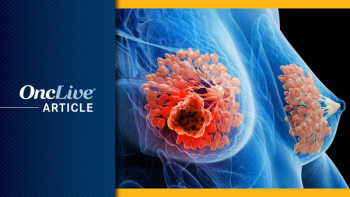
Treating Low-Risk HER2-Positive Breast Cancer
For High-Definition, Click
The regimens utilized to treat HER2-positive breast cancer continue to evolve as new therapies gain approval. By and large, HER2 status is being determined at a much earlier stage. Moreover, the increased efficacy of HER2-targeted therapies represents the potential to alter accompanying chemotherapeutics without significantly changing outcomes.
In the phase II TRYPHAENA study, 225 patients with HER2-positive early-stage breast cancer were treated with TCH (Taxotere, Carboplatin, Herceptin) plus pertuzumab or an anthracycline-based chemotherapy with or without pertuzumab and trastuzumab followed by pertuzumab, trastuzumab, and docetaxel. In general, the pathologic complete response (pCR) rates with these treatments were similar, Joyce A. O’Shaughnessy, MD, states. In fact, the pCR with TCH plus pertuzumab was 63.6% compared with the anthracycline-based regimens, which had a pCR rate around 55%. As a result, O’Shaughnessy prefers to administer anthracycline free regimens.
The primary endpoint of the TRYPHAENA study was cardiac safety, points out Hope S. Rugo, MD. Along with the secondary efficacy findings, the TCH plus pertuzumab regimen also demonstrated a marked reduction in toxicity, making it an appealing option, Rugo believes.
It is reasonable to present both options to patients, believes Mark D. Pegram, MD. Moreover, studies have shown that carboplatin can be omitted from the TCH regimen without significantly altering outcomes, even without the addition of an anthracycline, Pegram says.
For patients who do not tolerate docetaxel/carboplatin, Rugo recommends a switch to weekly paclitaxel with low-dose carboplatin. In a single-arm phase II study, weekly paclitaxel with trastuzumab was explored as a treatment for patients with low-risk HER2-positive breast cancer. This study demonstrated impressive findings, Rugo states. A randomized follow-up trial will compare paclitaxel plus trastuzumab to T-DM1.




































